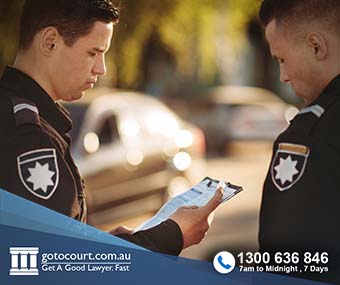Escape Lawful Custody Offences (NSW)
Escape Lawful Custody Offences (NSW)
Escaping from custody is different to resisting arrest. A person resists arrest when they fail to co-operate with police who are attempting to arrest them. A person escapes from lawful custody if they break free of the control of police or other officials after they have already been effectively placed under arrest. Escape from custody offences are contained in Part 6A of the Crimes Act.
What is ‘lawful custody’?
A person is in lawful custody if they have been arrested and detained in a way that the law authorises.
Possible defences
A charge of escape lawful custody can be defeated if the defendant can raise reasonable doubt that:
- They were in lawful custody;
- They escaped or attempted to escape
If the accused was arrested by police who did not have a reasonable suspicion that they had committed an offence, or the police used more than reasonable force to arrest them, the defence that the arrest was not lawful could be run. This defence could also be advanced if the accused was arrested mistakenly or held in custody beyond the point when they should have been released and was, therefore, the victim of false imprisonment.
Rescuing inmate from lawful custody
Section 310B of the Crimes Act makes it an offence to rescue or attempt to rescue an inmate from lawful custody by force. This offence is punishable by a maximum penalty of imprisonment for 14 years.
Aiding escape
Section 310C of the Crimes Act makes it an offence to aid an inmate in escaping or attempting to escape from lawful custody or to convey something to a correctional centre or to an inmate to facilitate the escape of an inmate. This offence carries a maximum penalty of imprisonment for seven years.
Escaping
Section 310D of the Crimes Act makes it an offence to escape or attempt to escape from lawful custody or to fail to return to lawful custody after being temporarily released. This offence carries a maximum penalty of imprisonment for 10 years.
Tunnels
Under Section 310E of the Crimes Act a person commits an offence if they construct tunnels that could be used to facilitate an inmate’s escape from lawful custody. This offence carries a maximum penalty of imprisonment for 10 years.
Permitting escape
Under Section 310F of the Crimes Act, a person who has custody of an inmate (such as a police officer or an officer of a correctional centre), commits an offence if they wilfully permit the inmate to escape from custody. This offence carries a maximum penalty of imprisonment for seven years. If the act is done negligently rather than intentionally, the maximum penalty is imprisonment for two years.
Harbouring escapee
Section 310G of the Crimes Act makes it an offence to harbour, maintain or employ an escaped inmate. This offence carries a maximum penalty of imprisonment for three years. This offence also applies to prisoners who have escaped from custody in another Australian jurisdiction.
Youth detention and Intensive Corrections Orders
The above offences do not apply to juvenile offenders who are in youth detention and escape from lawful custody. They do not apply to offenders who are serving a sentence under an Intensive Corrections Order.
If you require legal advice or representation in a criminal law matter or in any other legal matter, please contact Go To Court Lawyers.

Affordable Lawyers
Our Go To Court Lawyers will assist you in all areas of law. We specialise in providing legal advice urgently – at the time when you need it most. If you need a lawyer right now, today, we can help you – no matter where you are in Australia.How It Works




1. You speak directly to a lawyer
When you call the Go To Court Legal Hotline, you will be connected directly to a lawyer, every time.

2. Get your legal situation assessed
We determine the best way forward in your legal matter, free of charge. If you want to go ahead and book a face-to-face appointment, we will connect you with a specialist in your local area.

3. We arrange everything as needed
If you want to go ahead and book a fact-to-face appointment, we will connect you with a specialist in your local area no matter where you are and even at very short notice.























